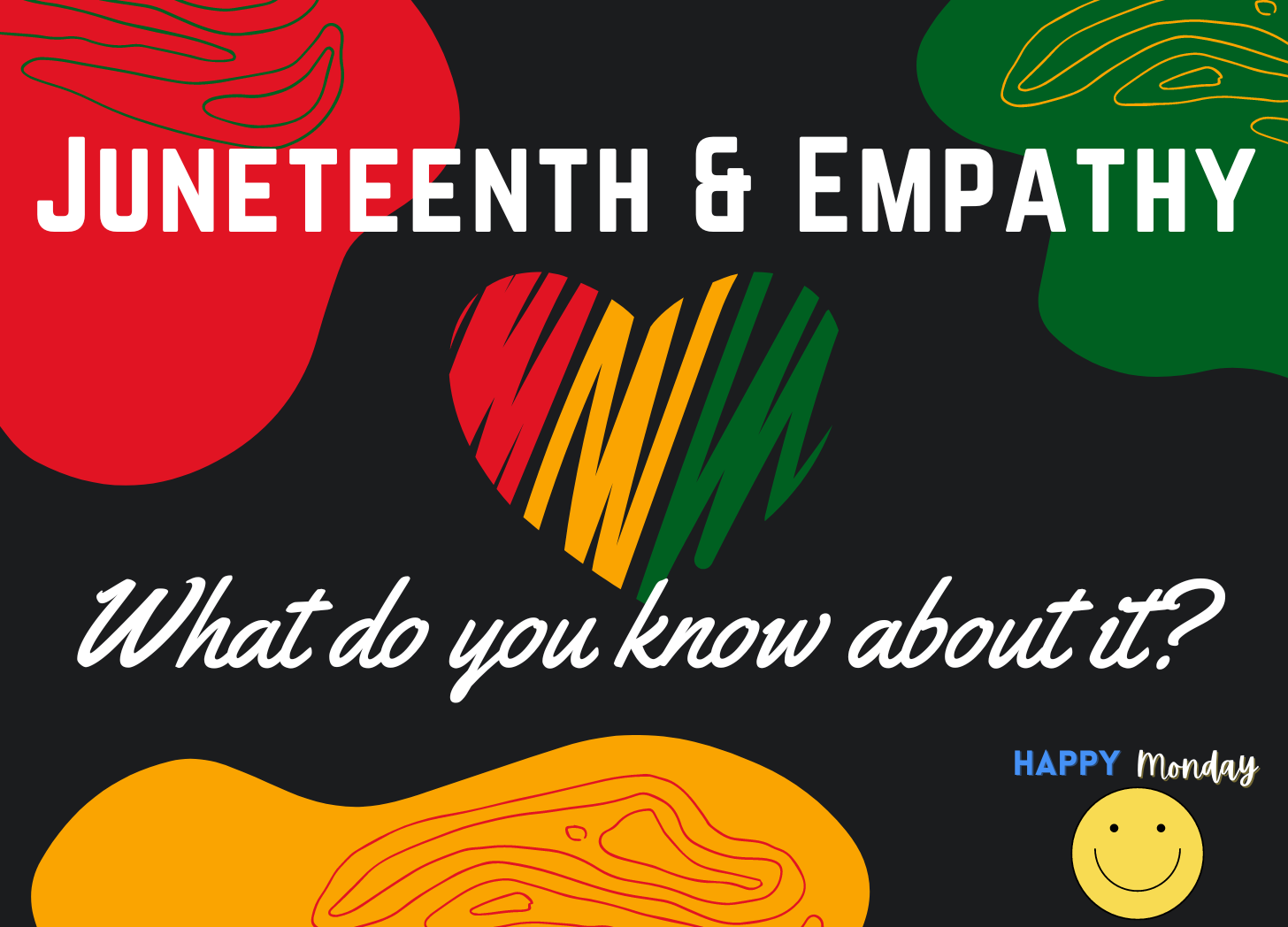Happy Monday, everyone! Last week, I told you about my play that was being performed at the Cincinnati Fringe Festival. It was a rousing success; we sold out! And people had very nice things to say at the talkback, which were helpful as I continue to develop the play. Will it have a life outside of this workshop? I sure hope so. I also told a story at trueFRINGE on Thursday, and that, too, was well-received. It was a great week!
This week, I wanted to talk about Juneteenth, which we will celebrate on Wednesday. Juneteenth, celebrated on June 19, is a significant holiday commemorating the end of slavery in the United States. The name "Juneteenth" is a blend of "June" and "nineteenth," marking the day in 1865 when Union General Gordon Granger arrived in Galveston, Texas, and announced General Order No. 3, which declared the freedom of all enslaved people in Texas. This announcement came more than two years after President Abraham Lincoln's Emancipation Proclamation, which officially outlawed slavery in the Confederate states on January 1, 1863.
I heard a story about someone commenting on a co-worker's PTO request for the holiday. The white woman who managed the schedule - and denied the request - said, "I don't believe in Juneteenth." I want to pretend that I have no idea what that even means, but unfortunately, I've been surrounded by racist people my whole life, and I absolutely know what she meant.
Saying "I don't believe" in something like a holiday that happens is not just ignorant denial of, you know, something that actually happens whether you "believe in it" or not. But it also diminishes the very dark reality of how African-American people have been treated in this country. And it also demonstrates why we need to continue to educate and expose people to cultures that are different from their own.
Empathy is an essential skill that we must practice. While some people seem unable to access their "empathy muscle," most don't know how to exercise it or are afraid to do so.
Practicing empathy involves developing the ability to understand and share the feelings of others. Here are several ways to cultivate and enhance this critical skill:
Active Listening. Pay close attention to what others are saying without interrupting. Show that you are listening by nodding, maintaining eye contact, and giving verbal affirmations like "I see" or "I understand."
Ask Open-Ended Questions. Encourage others to share more about their thoughts and feelings by asking questions that cannot be answered with a simple yes or no. For example, "How did that make you feel?" or "Can you tell me more about that experience?"
Put Yourself in Someone Else's Shoes. My favorite book is “To Kill A Mockingbird” by Harper Lee. In it, Atticus Finch teaches his children that you "never really understand a person until you consider things from his point of view . . . until you climb into his skin and walk around in it." Imagine how you would feel in the other person's situation. This mental exercise can help you better understand their perspective and emotional state. Did that guy who cut you off on the highway mean to ruin your day? Or maybe his wife is on her way to the hospital to have their first baby? Perhaps he really has to use the bathroom. We don’t know what we don’t know - and I am intentionally trying to assume good intentions.

Reflect on Your Own Emotions. Awareness of your feelings can help you connect with others' emotions. Practice identifying and naming your own emotions regularly. I have been actively practicing spiritual and cultural humility this year. Getting out of my own way by recognizing that I have a lot to learn has been a life-altering mindset.
Speaking of that, another way to practice empathy is by Learning About Different Cultures and Experiences. Educate yourself about the experiences of people from diverse backgrounds. Understanding different cultural norms, histories, and struggles can deepen your empathy for others. Engaging with stories through books, movies, or documentaries can provide insight into different perspectives and experiences, fostering empathy for characters and real-life individuals.
Volunteer and Help Others. Volunteering for causes that involve helping people in need can provide direct experience with different life situations and challenges, enhancing your empathy for those facing difficulties.
Seek Feedback. Ask friends, family, or colleagues for feedback on how empathetic you seem to them, and be open to their suggestions for improvement.
By consistently practicing these strategies, you can strengthen your ability to empathize with others and build more profound, more meaningful connections.
Juneteenth commemorates a pivotal moment in American history. It serves as an opportunity to honor the contributions of African Americans and continue the work toward equality and justice for all.
How will you honor the day?
This content is for educational and entertainment purposes and is not the same as therapy. If you need to talk to someone, go to PsychologyToday.com or one of the many online therapy platforms available and start treatment with a professional today!
For access to the weekly writing prompts, daily affirmations, and other exclusive content, consider becoming a paid subscriber!
Keep reading with a 7-day free trial
Subscribe to Kirk Sheppard to keep reading this post and get 7 days of free access to the full post archives.




